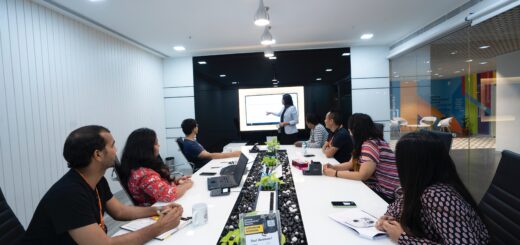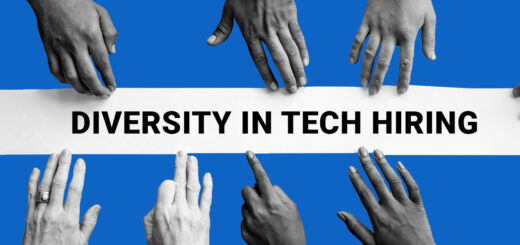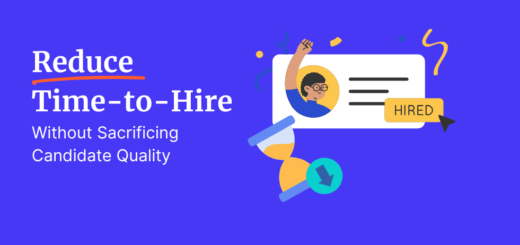Why Great Recruiters Think Like Product Managers ?

Hey, let’s try looking at recruiting from a fresh angle. Imagine you’re not just filling job openings. You’re building a product. And guess what? That product is your hiring process. The candidates? They’re the users of this product.
Sounds a little different, right? But it actually makes a lot of sense. The best recruiters I know don’t just focus on finding people. They focus on creating a smooth, clear, and respectful experience from start to finish. Kind of like how product managers build products people love to use.
Let me walk you through why thinking like a product manager can make you a better recruiter and how it can make your hiring faster, easier, and even enjoyable.
Hiring is like building a product; candidates are the users
First off, think about this. When you use an app or website, what do you want? You want it to be simple, quick, and useful. If it’s slow or confusing, you close it and move on.
It’s exactly the same for candidates. When they see a job post, that’s like a product’s homepage. If it’s boring or full of confusing words, they’ll scroll past. The first call or screening? That’s onboarding. If that call feels awkward or too long, candidates might lose interest.
And the interviews? That’s the main experience. It’s where candidates decide if this job feels right for them. If interviews drag on or questions seem random, they might think twice.
Finally, the offer is the last step. Like clicking the buy button on a website. If it takes forever to hear back, candidates get impatient and may say no.
So, by thinking about hiring like a product, you start paying attention to every step and ask. “Is this easy? Is this clear? Would I want to go through this?”
Create a better experience because candidates notice everything
Product managers obsess over how users feel. And recruiters should, too. Think about the candidate’s journey like a story you’re telling:
- Is your job ad clear, or does it sound like a robot wrote it?
- Do candidates get updates, or are they left wondering if they’re still being considered?
- How long does it take to get from applying to an interview? Weeks? That’s too long.
When you fix little things like these, candidates feel respected. They talk about their experience to friends, on social media, everywhere.
And trust me, a good experience helps attract better candidates next time.
You’re not just filling jobs, you’re building a system that works
Recruiting isn’t a mad rush to send out resumes and hope something sticks. That’s old school. The best recruiters think ahead.
They build clear, repeatable processes that make hiring easier for everyone:
- They spend time with hiring managers to understand exactly what kind of person is needed, not just what the job description says.
- They design a simple, step-by-step process that candidates and interviewers both understand.
- They keep candidates in the loop so nobody feels forgotten.
- And they tell a story about the company that makes people want to join.
This kind of system saves time, reduces mistakes, and helps hire better people faster. It’s like building a product that just works.
Use data to find what’s broken
Great product managers don’t rely on gut feelings. They look at data. They check where users get stuck, when they leave, and what makes them stay. Recruiters can do the same. Your hiring data is more than just numbers in a dashboard; it tells a story.
Start by noticing where candidates are dropping off. Maybe people apply but never complete the process. Maybe they stop responding after the first round. Maybe too many offers are getting rejected. Every pattern is trying to tell you something.
For example, if most candidates drop off after the screening call, maybe that stage feels too long or too generic. If offers are getting turned down, perhaps the process took too long or the expectations weren’t set clearly enough. These little signs show where the experience is breaking down. Fixing them might be as simple as sending quicker updates or asking better questions during interviews.
In the product world, they call it debugging. In hiring, it’s just paying attention and being curious about what’s working and what’s not.
Always ask, “How Can We Do Better?”
No great product is launched and left untouched. The best ones keep evolving based on real feedback. That’s how Spotify got smoother. That’s how your phone’s apps keep getting better. And that’s how your hiring process can improve, too.
After every round of hiring, pause for a moment and ask both candidates and hiring managers what they felt about it. Not just a form or a survey, have a quick chat. Ask what made sense, what felt slow, what they wished had gone differently.
You might hear that the feedback loop was too slow or that the job description felt unclear. You might find out your interviews ran too long or weren’t aligned with the actual work. These aren’t complaints. They’re gold. Every piece of feedback is a chance to take one small step toward a better experience.
Don’t aim for a perfect process all at once. Instead, keep asking this question: How can we make this just a little better next time?
Don’t Be Afraid to Try New Things
In the product world, trying new ideas is normal. You experiment, observe, learn, and tweak. Recruiters can do this too.
Maybe one week, you rewrite your job descriptions to sound more human and less like a legal document. The next week, you try AI Inte. Or you start AI interviews for screening, and start providing feedback to the candidates within 24 hours.
Not every idea will be a hit. But that’s okay. The point isn’t to be right every time. The point is to stay curious. Keep testing what makes your process smoother and your candidates happier. When something works, keep it. When it doesn’t, learn from it and move on.
That’s how progress works. One small test at a time.
Keep it transparent
Recruiting is about people. Real people with jobs, families, hopes, worries, and inboxes full of other emails.
So even if you’re busy or your tools are fancy, stay grounded. Talk to candidates like you’d talk to a teammate. Be honest when things are delayed. Say thank you for their time. Let them know what to expect and when.
You don’t need scripts to sound kind. You don’t need automation to follow up. What candidates remember most isn’t just whether they got the job, it’s how they felt during the process. Did someone see them? Did someone respect their time?
If the answer is yes, they’ll speak highly of your company, whether they join or not. That’s a reputation you can’t buy.
You’re Already a Product Manager, You Just Don’t Know It Yet
You might not have the title, but if you care about building a better hiring experience, you’re already doing what great product managers do. You’re paying attention. You’re listening. You’re trying new ideas. You’re working to build something that helps people find their next opportunity and helps teams grow.
That mindset matters. It turns everyday recruiting into something more intentional and thoughtful. Something that people want to be a part of.
How to Start Right Now
If you’re wondering how to apply all this without overhauling your whole system, here’s something simple. In your next five candidate conversations, ask one question at the end:
“What’s one thing we could’ve done better?”
That’s it. Just ask and listen.
Maybe someone says the process felt long. Maybe another says the job description didn’t match the role. Take note. Pick one easy thing and make it better next time. Then do it again the next time after that.
You don’t need a big plan. You just need to care enough to keep improving.
Because great hiring doesn’t come from fancy frameworks or shiny tools. It comes from being thoughtful, paying attention, and trying to make things a little better every time.
Start thinking like a product manager, and you’ll start hiring like one too.
Conclusion
Recruiting is really about people. And like building a good product, hiring gets better when you care about the experience.
If you want to fix the small things that slow you down or make hiring feel messy, start by asking questions and making one small change at a time.
And if you ever need a little help, we’re here. At HireHunch, we’ve built multiple solutions to help recruiters hire faster without compromising on the quality.
Why should I use data in recruiting?
Because numbers show where people drop off or get stuck. It helps you fix what’s not working.
How can I get feedback from candidates?
Just ask them. One simple question like "What could we do better?" after the interview can give you helpful answers.
What’s one small change I can try today as a recruiter?
Follow up faster after interviews. A quick message shows respect and keeps people engaged.



